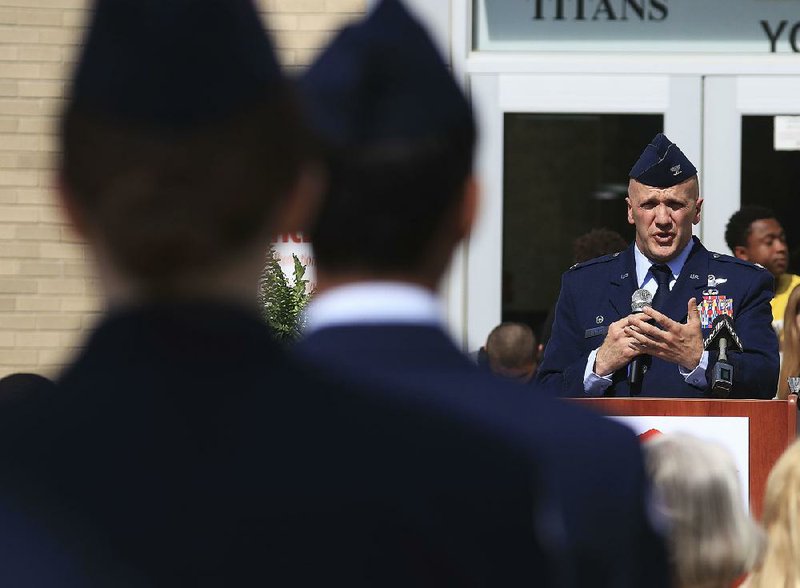Jacksonville High School officials want their school to become a center of excellence for cybersecurity education.
On Monday, they got a $377,812.75 shot in the arm from the Arkansas Economic Development Commission, which awarded the school a startup grant for its cyber program.
It's a natural fit with the campus located less than a mile from Little Rock Air Force Base, which houses a first-of-its-kind cyber training school.
Jacksonville joins four other schools in the state offering a cyber curriculum, according to the Arkansas Department of Career Education, but it will be the first to partner with a local military base and college to have active airmen and professors come to the school and offer students first-hand insights and certification training.
The program dovetails with two of Gov. Asa Hutchinson's focuses since taking office -- computer science education and maintaining and improving the state's military assets.
Students who complete the programs will be positioned to continue their studies at several Arkansas universities, join the workforce as certified cyber technicians or become cyber warriors in the Arkansas Air National Guard.
"Is that not a good story?" Hutchinson said in front of a crowd of students and administrators at Jacksonville High School on Monday.
The grant is the second awarded by the Economic Development Commission's military affairs division; the first went to White Hall last month to fund a land-use study for the Pine Bluff Arsenal.
Jacksonville students, beginning in ninth grade, may enter the four-year program. They could graduate with a pair of computer security industry certifications for "in-demand, high-paying" careers, according to the commission.
Jacksonville officials plan to spend most of the commission's grant to buy, install and certify the hardware and cyber range. The school also stands to receive more than $400,000 in matching funds from local grants.
The school district will fund the program after the grant money runs out, said Jacksonville/North Pulaski School District Superintendent Bryan Duffie.
Hutchinson last year provided $500,000 in discretionary funds to the University of Central Arkansas for the development of a cyber range. The ranges can simulate cyberattacks, training students to identify, predict and prevent them.
Air Force officials met Monday's news with praise.
Last year, the Air Force began searching for ways to entrench itself in schools near its installations. Air Force leaders hoped to use that education involvement as a recruiting tool and to improve nearby schools. The quality of local education is a key factor that potential airmen and current airmen consider before enlisting or forgoing retirement to continue serving, according to Col. Chris Karns, director of public affairs for the Air Force's Air Mobility Command.
The development of Jacksonville's cyber education program symbolizes the community's support for Little Rock Air Force Base, said Col. Gerald Donohue, commander of the 19th Airlift Wing.
"Our airmen's children will be well positioned when they are stationed here at Little Rock," he said. "I'm afraid that I might lose more and more to become permanent residents."
Metro on 05/15/2018
